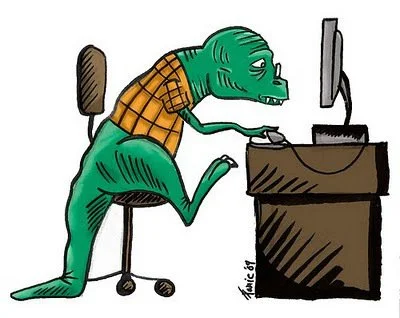What is worth learning? My thoughts on a professor's article from 2016
Need to find image
Originally written and published on March 30, 2016.
WHAT IS WORTH LEARNING?
http://www.sott.net/article/312948-Professor-Patrick-Deneen-explains-how-kids-have become-a-generation-of-know-nothings
Reading this in 2023, while I think that my thoughts from 2017 still have some validity, I now have a better idea of where the professor is coming from. Whether that means I am getting wiser, or merely older and grumpier, is subjective.
(Please note that the italicised type below reflects words taken from the original article, with the bold italics reflecting bold type in the original article. By contrast, the plain type shows my own reflections on various points.)
My students are know-nothings. They are exceedingly nice, pleasant, trustworthy, mostly honest, well-intentioned, and utterly decent. But their brains are largely empty, devoid of any substantial knowledge that might be the fruits of an education in an inheritance and a gift of a previous generation. They are the culmination of western civilization, a civilization that has forgotten nearly everything about itself, and as a result, has achieved near-perfect indifference to its own culture.
This is a really interesting concept. Is this point of view reflective of an objective truth – i.e. are we really missing out on knowledge that would improve our abilities to understand the world around us? Perhaps. But given that I’m part of the society he’s talking about it, I can’t tell what the alternative looks like. It’s like telling a fish it lives in water, and the fish, needless to say, being nonplussed to discover this.
Some students, due most often to serendipitous class choices or a quirky old-fashioned teacher, might know a few of these answers. But most students have not been educated to know them. At best, they possess accidental knowledge, but otherwise are masters of systematic ignorance. It is not their "fault" for pervasive ignorance of western and American history, civilization, politics, art and literature. They have learned exactly what we have asked of them - to be like mayflies, alive by happenstance in a fleeting present.
I agree with his take here about our education system. I often cringe when younger people do not know things that I thought were common knowledge. But I don’t know the answer to a good half of what Professor Deenen suggests is important to know. So my take on this is mixed. While I appreciate the need to learn from history, exactly which history is important? And in the fast-paced modern world, perhaps our education system is trying to teach us things (and generally failing, but that’s another story) that have relevance in the modern world?
During my lifetime, lamentation over student ignorance has been sounded by the likes of E.D. Hirsch, Allan Bloom, Mark Bauerlein and Jay Leno, among many others. But these lamentations have been leavened with the hope that appeal to our and their better angels might reverse the trend (that's an allusion to Lincoln's first inaugural address, by the way). E.D. Hirsch even worked up a self-help curriculum, a do-it yourself guide on how to become culturally literate, imbued with the can-do American spirit that cultural defenestration could be reversed by a good reading list in the appendix. Broadly missing is sufficient appreciation that this ignorance is the intended consequence of our educational system, a sign of its robust health and success.
I’d be curious to see what this reading list looks like, maybe I can consider it a challenge. I feel that I could mount a reasonably strong defence of Western civilization and its values without stretching back into antiquity (although I appreciate what happened back then has had a direct effect on the world we have now). I'd argue that there is a set of assumptions underlying some of these beliefs which may be obsolete to a degree. The first is that people must serve an apprenticeship, earn their stripes, etc., in the time-honoured way. Secondly, in a much more diverse world, why has this set of “classics” not appeared to have shifted in decades?
As such, if young white people realise that the best possible achievement of Western civilization is to share it globally, why do the gatekeepers not have the confidence to allow other texts into their courses? Is it because it would move them out of their comfort zones? Would it be tacitly recognising that some of what is in the Western canon should be open to debate? Is it because it reflects the old white boys club? And of course, could it be rage that falling student numbers undermine the privilege and respect some academics have taken for granted?
If this knowledge is so powerful, why are young people not flocking to learn it? I’ll agree that ignorance is one cause, but it could also be that the vast majority of people actually know how to get along – and are focused upon the future rather than the past.
Regardless of major or course of study, the main object of modern education is to sand off remnants of any cultural or historical specificity and identity that might still stick to our students, to make them perfect company men and women for a modern polity and economy that penalizes deep commitments. Efforts first to foster appreciation for "multi-culturalism" signaled a dedication to eviscerate any particular cultural inheritance, while the current fad of "diversity" signals thoroughgoing commitment to de-cultured and relentless homogenization.
I can see this to some degree, but again, is this a bad thing if people are focused upon living together peacefully? And in any case, I’d suggest that there are still big differences between young people from different cultures, even if they are superficially similar.
Ancient philosophy and practice praised as an excellent form of government a res publica - a devotion to public things, things we share together. We have instead created the world's first Res Idiotica - from the Greek word idiotes, meaning "private individual." Our education system produces solipsistic, self-contained selves whose only public commitment is an absence of commitment to a public, a common culture, a shared history. They are perfectly hollowed vessels, receptive and obedient, without any real obligations or devotions.
I’m not sure about this. What if the culture we share, rather than only belonging to white people, is evolving into something that reflects the better side of humanity, and is gradually improving the lives of all human beings across the world?
What if such a culture can be built upon people like Mother Theresa, Nelson Mandela, Mikhail Gorbachev, Deng Xiaoping, and Malala? What if it can celebrate the 2 billion people who have been lifted out of poverty in the last two decades? The virtual abolishment of diseases like smallpox and polio? The spread of ideas due to the Internet and tourism? The fact that international students are lifting the average level of scientific knowledge throughout the world?
What would be possible going forward if we learn to accept diverse ways of living across the planet, rather than trying to force our perspectives on others?
What do you think?






